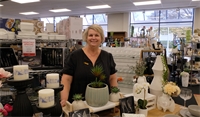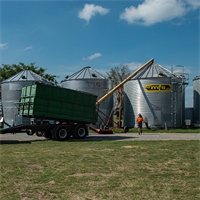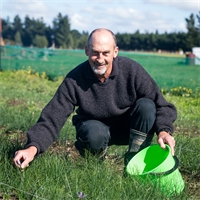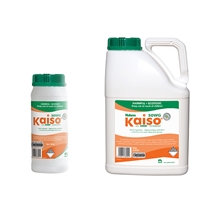23Jan
Low methane research to help dairy farmers stay world-leading
WORDS & IMAGES SUPPLIED BY JANE KAY, DAIRYNZ PRINCIPAL SCIENTIST
There is a lot of pride that comes from working in a sector that has the most emissions efficient dairy farmers in the world. To help maintain that position, I am working with a team of three other scientists at DairyNZ, and many others across multiple partner organisations, to research options that could help further reduce methane emissions.
This work will help future-proof and progress a positive future for dairy.
New Zealand’s pasture-based dairy farms make us highly competitive, but this also adds complexity to incorporate some of the solutions that are used in overseas systems.
DairyNZ is researching whether solutions designed for indoor and feedlot farming systems overseas can be successfully tailored and incorporated into our farming systems.
One potential solution we’re looking at is feeding methane-reducing compounds to cows and calves.
DairyNZ is working with research partners to assess whether feeding probiotics to calves could reduce emissions. Adult cows have a stable rumen environment, so calves are seen as a more promising research alternative, given their rumen is still developing.
We also know many methane-reducing products have short-lived responses. Some companies are exploring slow-release formulations and boluses, which we are evaluating. If these developments can be effective for longer periods of time, this could provide a more consistent reduction in methane emissions on pasture-based farms.
New ways of delivering these compounds are also being trialled. This includes in-paddock automated feeders to control the frequency, timing and amount of methane-reducing product consumed by cows, providing a potential opportunity for pasture-based farms to administer the product more often throughout the day while their cows are grazing.
DairyNZ is also collaborating with research partners to study a methane-reducing vaccine.
Farmers are providing advice on how to design solutions that work well on farms. Solutions are tested against a range of criteria including effectiveness, impact on animal health, profit and production, farm system fit and effects on milk.
DairyNZ is committed to helping farmers reduce methane emissions while maintaining on-farm profit. Finding effective solutions for our pasture-based farms and providing dairy farmers a suite of mitigation strategies continues to be a research priority, and a work in progress.
I look forward to continuing work in this space and working with farmers on this journey.
Our methane mitigation research at DairyNZ is funded by dairy farmers (through DairyNZ’s levy), the NZ Government (MPI; including New Zealand Agricultural Greenhouse Gas Research Centre/NZAGRC, AgriZeroNZ) and commercial companies.
You can find out more about current research and progress by visiting www.dairynz.co.nz/lessmethane
Jane Kay is a DairyNZ Principal Scientist who leads DairyNZ’s Less Methane programme. She is also interested in a wide range of research, including ruminant physiology, nutrition and metabolism; transition cow management; once-daily milking; and milk fat composition and manipulation.
Back to Real Farmer
Related

Built on more than 50 years of manufacture and supply to the civil and agricultural sectors, Hynds P...
Read More

Ikebana is the traditional Japanese art of flower arrangement, which emphasizes minimalism, harmony,...
Read More

A self-proclaimed “people person” Ruralco’s Retail Manager, Tina Thompson’s focus on helping cus...
Read More

For the next three months we are looking at the final sprays for finishing off our cereal and grass ...
Read More

A lifestyle change signaled a return to farming roots for Canterbury Saffron growers Geoff and Jude ...
Read More

The cereal aphid (Rhopalosiphum padi) may be tiny in size, but as the main vector for one of the mos...
Read More